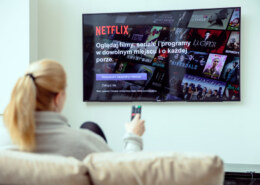The way we consume entertainment has undergone a dramatic transformation in the last two decades. From the golden age of cinema and the era of DVDs to today’s digital-first world, one innovation has reshaped the movie industry more than any other: streaming. Platforms like Netflix, Amazon Prime Video, Disney+, and countless others have not only changed how movies are delivered but have also revolutionized our viewing habits, expectations, and the industry itself.
1. Accessibility Anytime, Anywhere
Gone are the days when viewers had to visit cinemas, rent DVDs, or wait for TV schedules to enjoy their favorite movies. Streaming platforms have placed vast libraries of films directly in our pockets. With just a smartphone, smart TV, or laptop, audiences can access global cinema anytime, anywhere. This convenience has made movie-watching a more personal and on-demand experience.
2. The Decline of Traditional Cinema
While theaters remain important for blockbuster releases, streaming has disrupted the dominance of traditional cinema. Many audiences now prefer watching films at home, where they control the environment and avoid the costs of theater tickets. Even Hollywood has adjusted: some movies now release simultaneously in theaters and on streaming platforms—a trend accelerated by the COVID-19 pandemic.
3. Shaping Viewing Habits
Streaming has introduced “binge culture,” where entire seasons of shows and movie trilogies can be consumed in one sitting. This behavior has influenced how stories are written, with filmmakers creating content designed to keep viewers hooked from one episode—or film—to the next. The flexibility to pause, rewind, or fast-forward has also shifted audiences’ expectations of control over their entertainment.
4. Global Reach and Diversity of Content
Before streaming, access to international films was limited to niche festivals or specialty stores. Today, streaming services are breaking geographical barriers by making films from around the world easily available. This has given rise to cross-cultural appreciation—Korean dramas, Nigerian Nollywood films, and Bollywood blockbusters now enjoy global audiences.
5. Changing Business Models
The economics of movies has also shifted. Box office numbers used to be the sole indicator of success, but streaming platforms now measure success through subscriptions, engagement, and watch time. Independent filmmakers benefit too, as streaming services provide a platform for low-budget productions that might never reach theaters but can find niche audiences online.
6. The Rise of Original Streaming Content
Streaming giants have evolved beyond distributors into creators. Netflix Originals, Amazon Studios productions, and Disney+ exclusives dominate the cultural conversation. This trend has blurred the line between “film” and “streaming content,” with award-winning films premiering directly online.
7. The Future of Movie-Watching
While the cinematic experience will never vanish—especially for spectacle-driven blockbusters—streaming is now the dominant force shaping the future of film. With advancements like AI-driven recommendations, personalized viewing, and even interactive movies, audiences can expect even greater customization in the years ahead.
Conclusion
Streaming has forever altered the way we watch movies. It has made films more accessible, diverse, and tailored to individual preferences while challenging the traditional structures of cinema. What was once a communal, occasional outing to the theater has now become a personal, everyday experience at the touch of a button. The age of streaming has not just changed movie-watching—it has redefined it.

